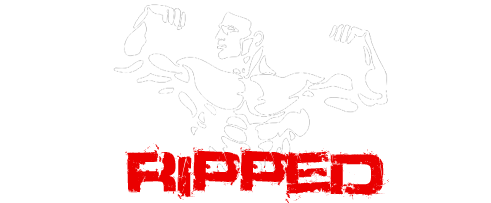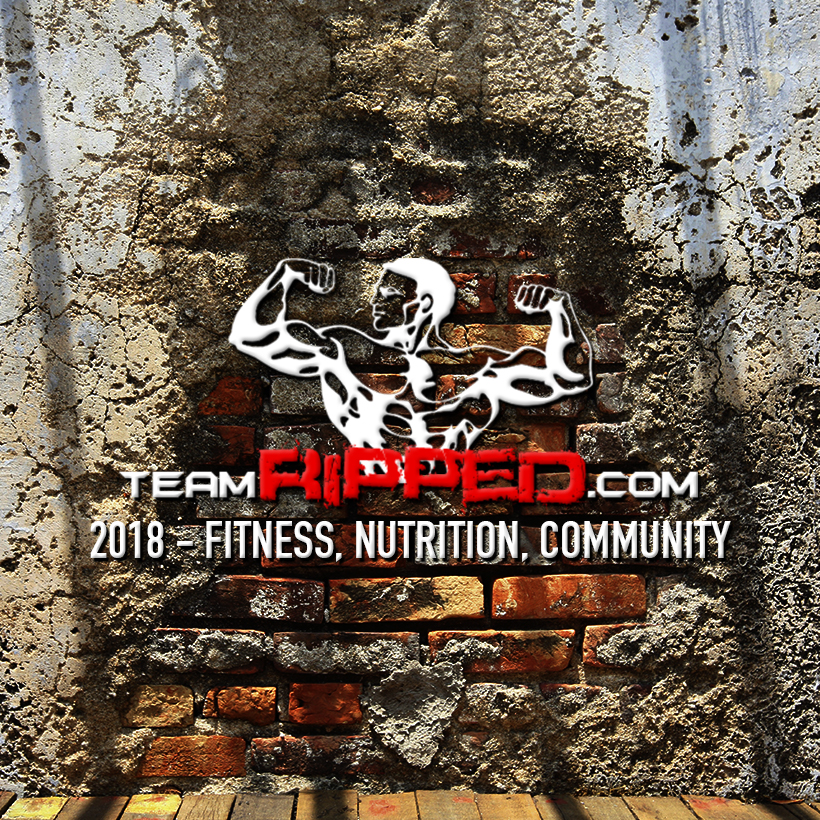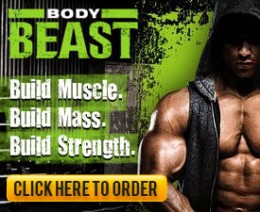It’s time to talk about PROTEIN! Again!
I write articles that answer the most common questions I get, and I get a lot of protein questions, so let me answer them for you here. I will answer the following common questions I get in the article below =
*How much protein do I NEED? I’ve read that your body only needs 1 gram per pound, so isn’t the amount of protein on the fat shredder diet too much?
*Isn’t too much protein hard on your body?
*Which kind of protein should I get? Whey? Soy? Casein?
*Is one brand better than another? How can I know which brand to get?
*When should I take it? Before workout? After workout? Morning? Evening?
*How much should I take? 1 serving per day? 2? 3?
So many protein questions are out there, and how do we get an effective plan of attack to make the most of our protein supplementation?
Here’s my abbreviated review of who, what, when, where, and how about protein!
First, there are MANY nutrition plans out there. And there are many rules of thumb about how much protein we should take in. Many of you have seen the “1 gram per pound of body weight” rule of thumb or the “30 grams per meal” rule of thumb. Those are just rules of thumb. It doesn’t mean that taking more than that per body weight, or more than 30g per meal, is a waste or will hurt you. Protein is just an energy source, like carbs and fats. Each energy source has different properties. The nice thing about protein is that of the 3 energy sources (proteins, carbs, and fats), protein is the LEAST likely to convert to body fat. Thus, on a diet designed to shed body fat quickly, proteins should be a major component. Your body can use protein for fuel and for muscle building, but won’t likely store it as fat if it doesn’t immediately use it.
Another nice thing about protein is that it digests slowly. It gives your body a slow, steady source of energy and keeps you feeling satisfied and full much longer than carbs. This is very handy when running a calorie deficit and trying to lose weight. You won’t feel the intense hunger pangs.
These are a couple of the reasons why the P90X nutrition plan uses 50% protein on the fat shredder diet. It will allow your muscles plenty of amino acids (the building blocks of protein) so that you preserve muscle mass while losing weight. Plus, it will give you an energy source that is unlikely to convert to fat. That’s why the fat shredder diet works so well. Is it more protein than you “need”? Sure it is! You don’t “need” that much protein. But it helps you reach your goals faster to shift your diet to high protein for a period of time when cutting body fat.
Now, another question as a follow up to that is about the risks of a high protein diet. It is true that consuming high quantities of protein for a long period of time can put stress on the kidneys, which have to process the protein. This is important, and you need to keep that in mind. Doing a fat shredder diet for a full 90 days isn’t a problem, but if you have LOTS of weight to lose and need to be on a fat shredder diet for months and months and months, it is very wise to get regular doctor checkups to monitor your blood work and organ function. We are doing this to get fit and healthy, and the last thing we want is to harm ourselves by staying on a certain diet too long. So if you are concerned, or if you have been on a fat shredder diet for more than 6 months, GET CHECKED out — if nothing else just for the peace of mind that your body is still functioning smoothly.
So, with those basics about protein and why it’s high in the fat shredder diet, let’s now look at some specifics about supplementing it:
I’ve tried several types and several brands. The first thing to determine when selecting a type or brand of protein is “What do I need this for?”. Usually, it’s because you need protein supplementation to hit your target percentages for protein (50% on fat shredder, 40% on balanced, 30% on endurance maximizer). If you can eat enough protein in your diet without protein powder, then you may not need to buy any protein supplements! But this is rare, as most of us don’t get enough from lean meats, etc. on a daily basis.
So, from tracking your diet, you’ll determine how much protein you need in your diet from protein powder per day to hit your percentages. For me, this is typically about 80-100g (in addition to what I get from my diet). Run your own numbers to determine that. It’s very difficult for me to answer someone who asks “How many protein shakes should I take per day?” because like I said above, it depends! You may need none. You may need 4. Run the numbers and be sure you hit your target numbers and percentages for the phase of the nutrition plan you are on.
Next, assuming you’ve decided you need protein powder in your daily routine, which one should you get? Some are cheap, some are expensive, and there are lots in between. I’ve tried cheap (like EAS whey from Sam’s Club), and I’ve tried above average cost (Wheybolic Extreme 60), and I’ve tried several in between (Muscle Infusion, O.N. Gold Standard, etc.). I haven’t tried some of the high end ones because I’m happy enough with what I’ve used so far. The key thing to look at is the nutritional profile. You want maximum protein, minimal fat, and minimal carbs. I’m currently using Dymatize Iso-100 because it is reasonably priced and has a great % of protein per serving (24g of protein in a 106 calorie serving).
And just because one type of protein may have more grams of protein in a serving doesn’t mean it’s better. You have to look at the size of the serving and the total calories of the serving. Do the math and figure out which protein has the best ratio of protein calories to total calories. For instance, Wheybolic Extreme 60 has 20g of protein in a 93 calorie scoop (80 of the 93 calories are protein = 86% protein). This is better than ON Gold, which has 24g of protein in a 130 calorie serving (96 of the 130 calories are protein = 74% protein).
It’s also nice to have the essential amino acids in high quantities (some have more than others). I’ve found that a good “value” is O.N. Gold Standard — it’s not the cheapest, but it’s not the most expensive either, and it’s got solid nutritional information. I used it a lot for the first several months.
Another consideration you have to make is whether or not you want to go with whey as your protein powder. Casein protein is great in the evenings because it is slower to digest and stays in your system longer. This is perfect for overnight use by your muscles. I tried some, but got a horrible tasting version and had to toss it out! I never resumed my search, and I just use whey in the evening LOL! If you’ve found a casein protein that you like to use in the evening, perfect!
I haven’t used soy protein powder myself (there are various debates about estrogen levels in men from too much soy protein, so I figured why risk it). Soy is a good protein though. My wife has used it and likes it. You might want to consider soy protein if you are allergic to whey (although even those with lactose allergies often do fine with whey because it is isolated from the milk and all lactose is “supposedly” removed). But if you have milk allergies, check first before buying a whole tub!
There are also vegan plant based protein powders available. I’ve used the Sun Warrior “Warrior Blend”. It’s a great protein (a bit grainy texture, as all plant based proteins are, but high quality).
And finally, once you’ve figured out how much protein you need, which type and brand you are going to use, and you’ve added it to your diet, the final question is when should you use it to best fit around your workout times?
It’s good to have protein in your system before working out. This may require you to use one of your shakes before a workout (45min to 1 hour before). But if you already have regular food on board from a meal, then you won’t need it then. It’s also good to get protein in your system within an hour after your workout. Again, this is a great time for a shake, and I’d recommend using it then for sure (I prefer a shake to food just because the balance of amino acids will be better in your protein powder than in a piece of meat, for instance). Post workout is probably the most critical time to consume protein powder because your body is in an anabolic state and ready to repair and grow muscle. And then you’ll also want to be sure you have protein in your system in the evening so your muscles have the fuel they need to recover and grow overnight. This is also very important. I like to take a scoop of whey protein mixed in water between dinner and bedtime.
Other than those obvious times, it is also important that at every meal/snack you fuel your body with protein, so you may find that you like to use protein powder for a morning snack, or an afternoon snack, depending on what else you use for snacks. What you don’t want is a carb-only snack with no protein. Every one of the 5-6 times you eat during the day should have a nice protein source.
I hope this review didn’t confuse you more!! Ask if you have questions about your protein powder or how you are using it and I’ll do my best to answer!
Need a coach?
This is what I do. I help people get results and use my experience and the experience of thousands of teamRIPPED members to do it. I have been there and done it! My help costs you $0... NOTHING! So try me. Send me and email or message me on Facebook. I am here to help! All you have to do is sign up below and you will be part of teamRIPPED!My email: coachwayne@teamripped.com
IG: @wayne_wyatt









